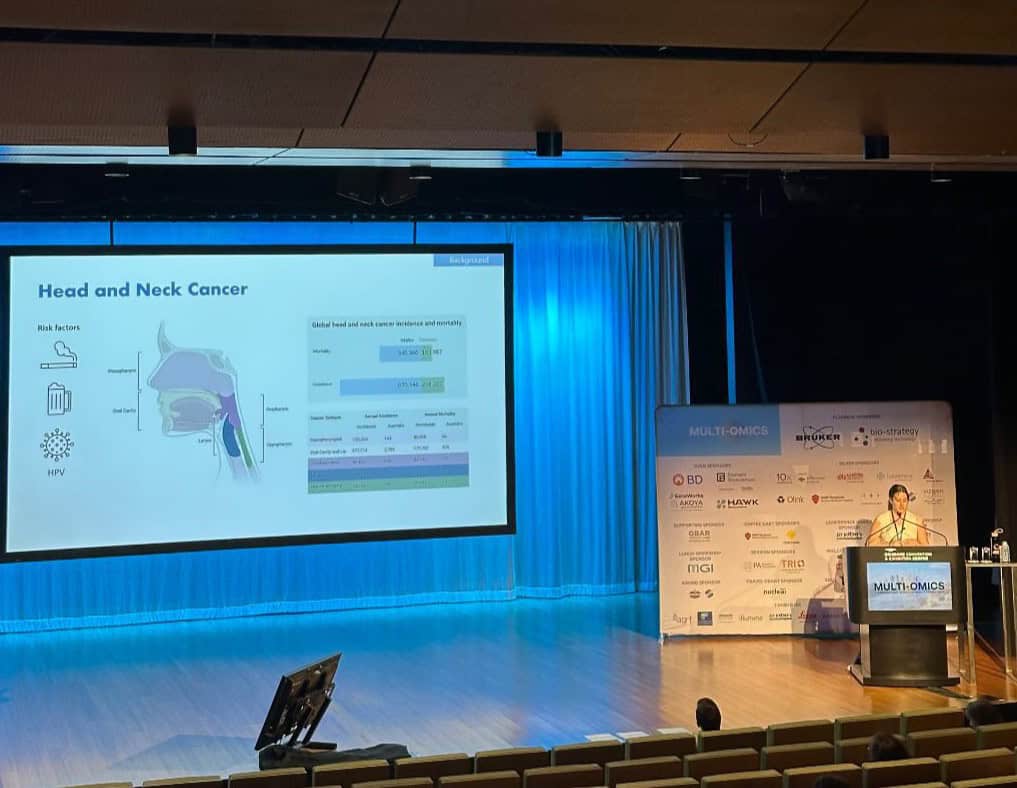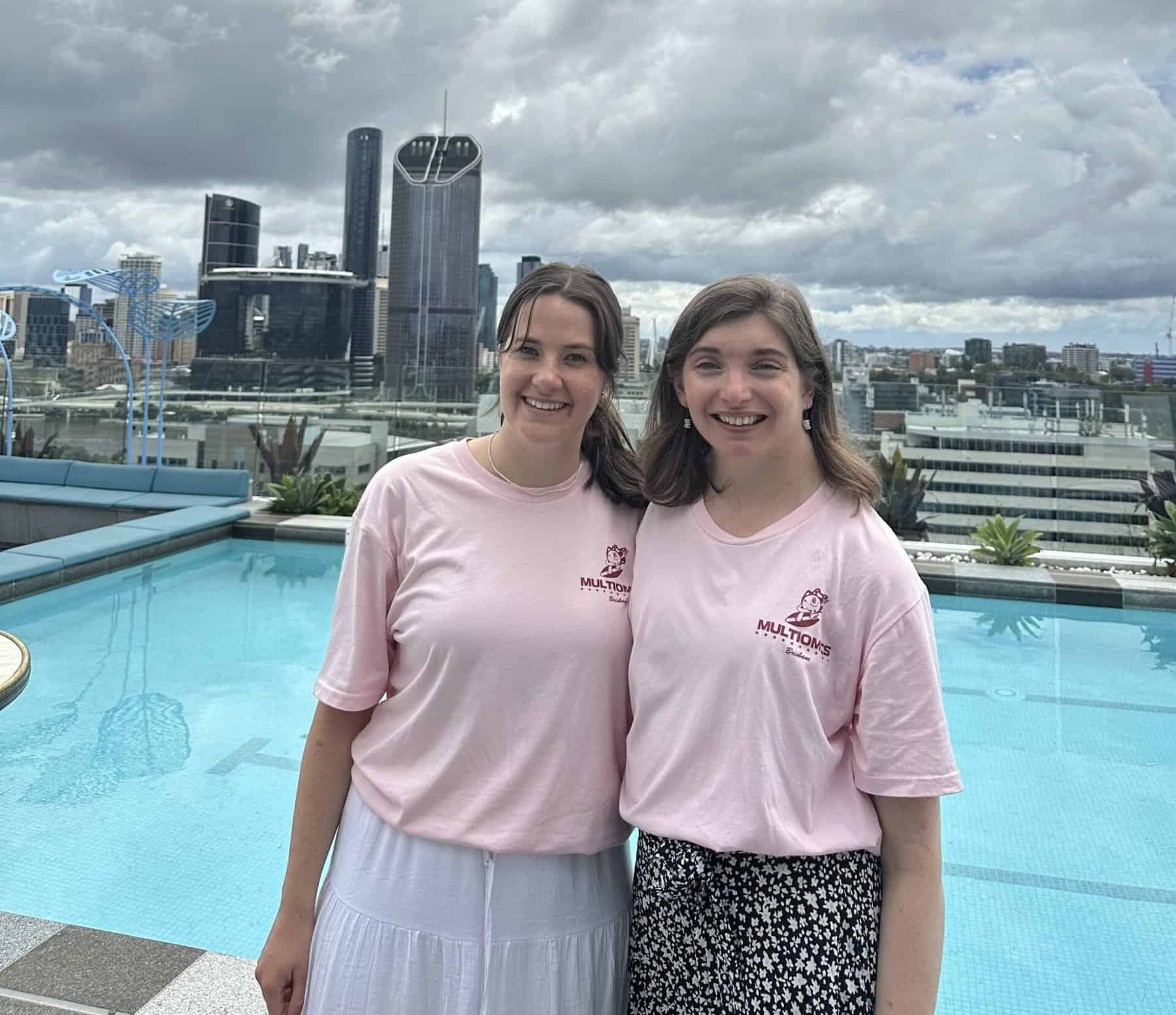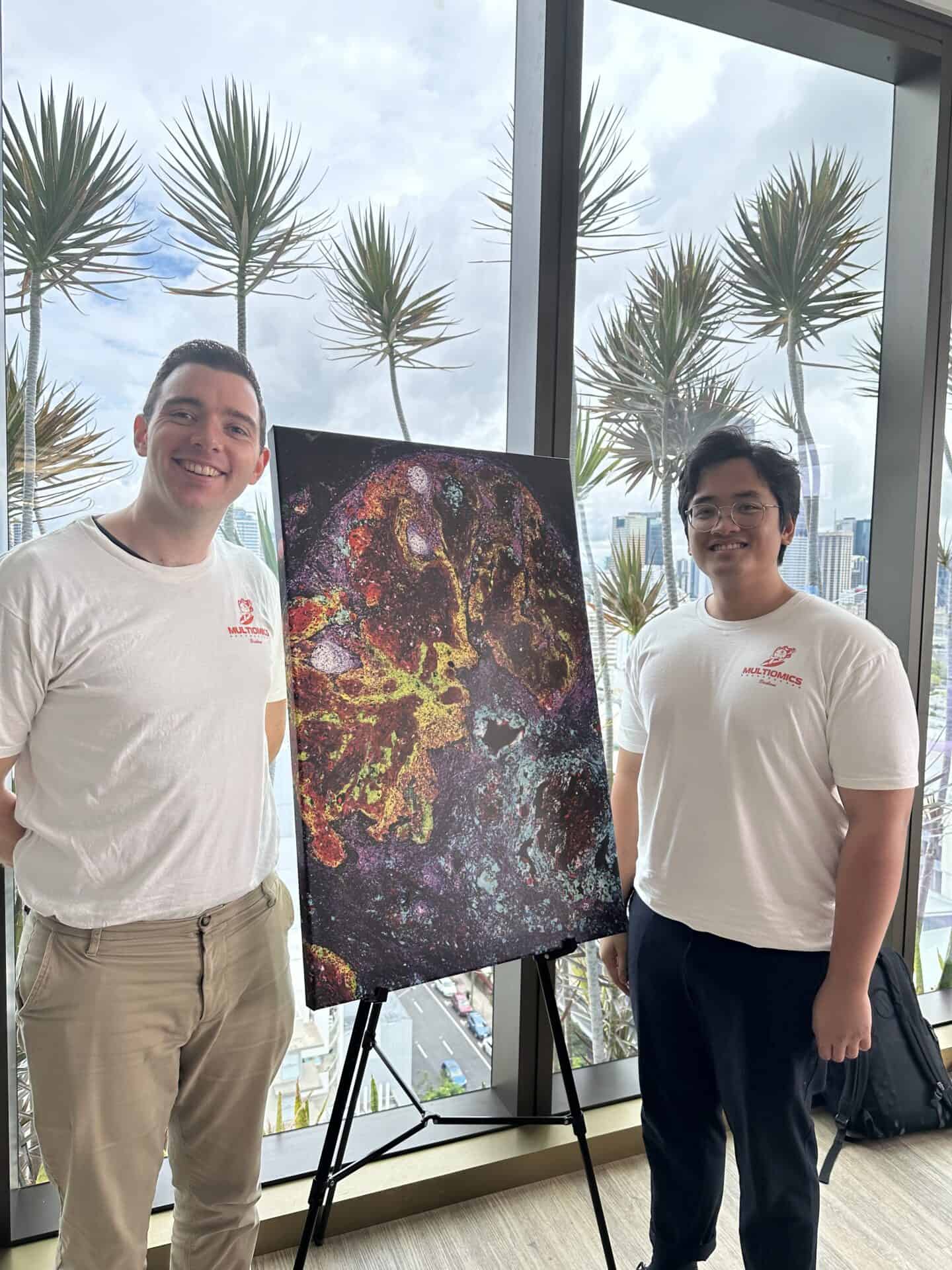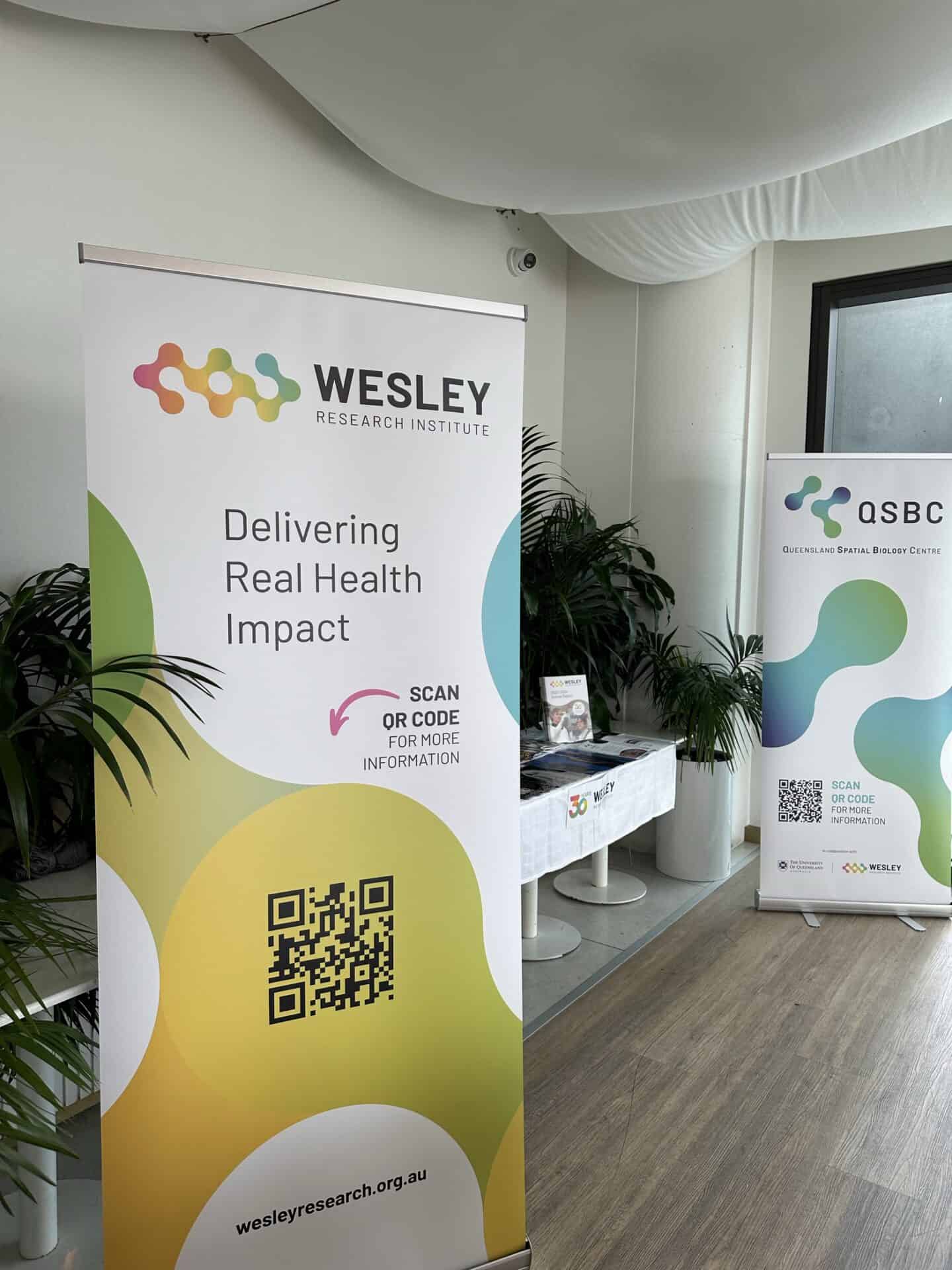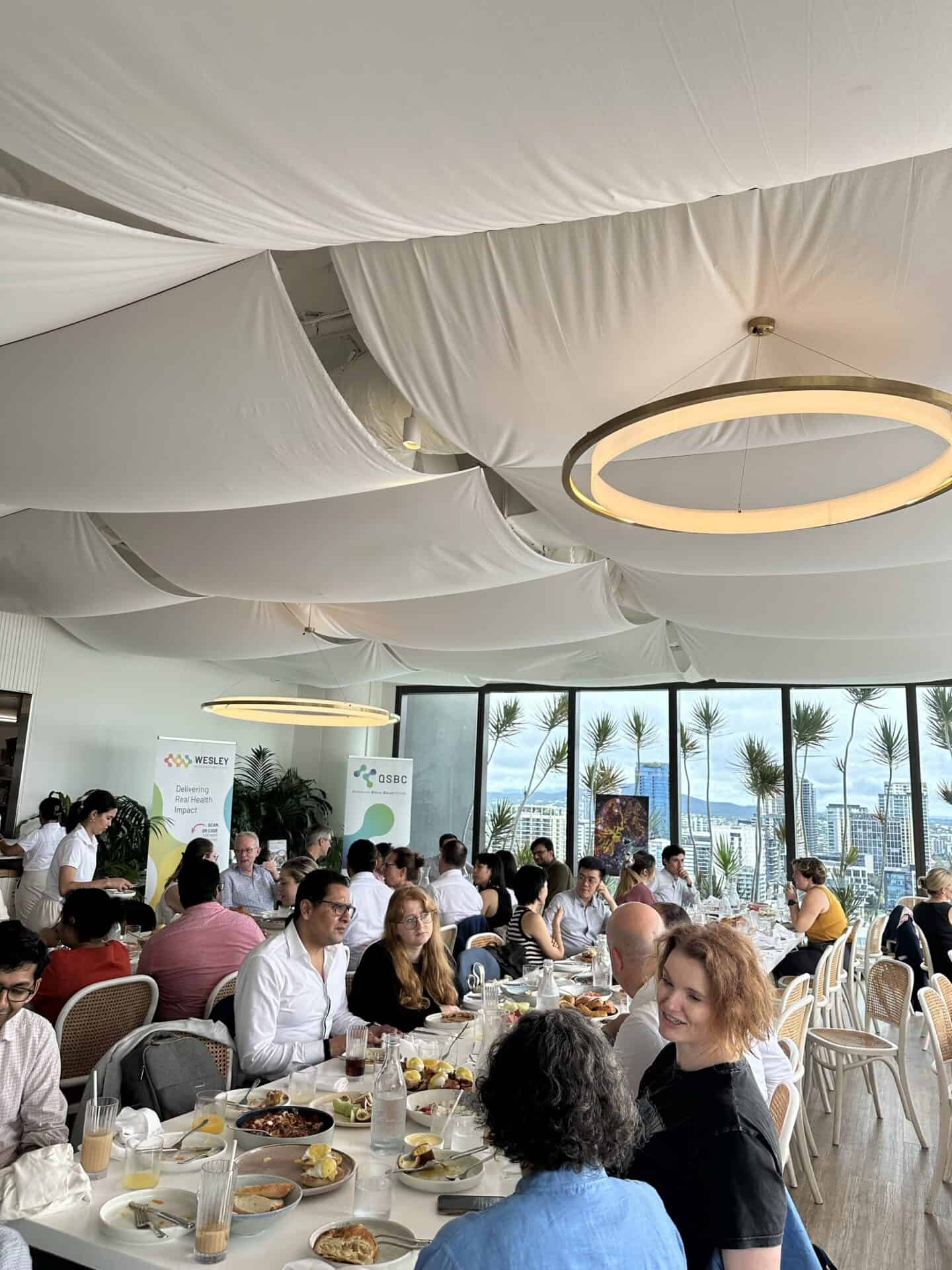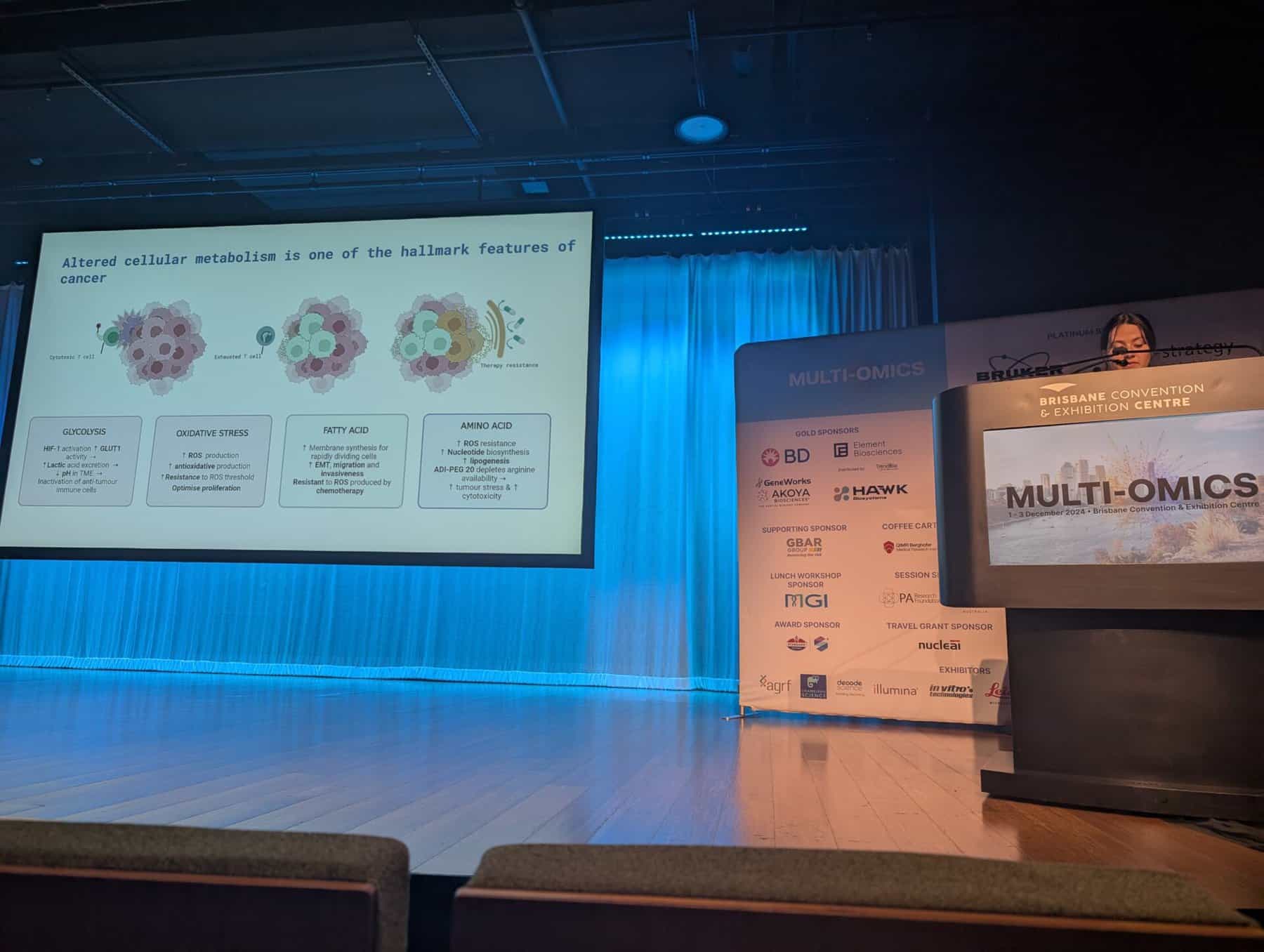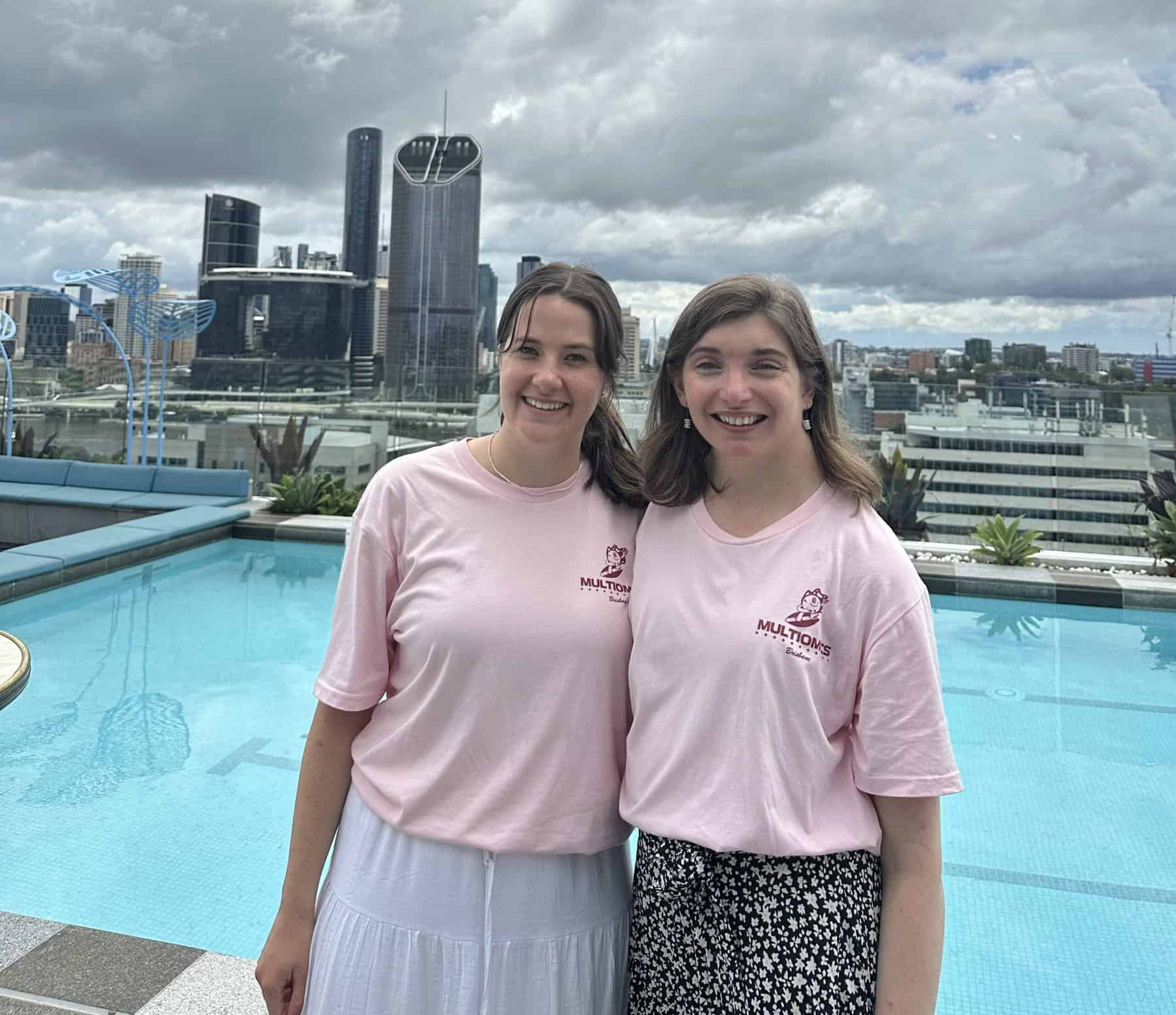
Queensland Spatial Biology Centre (QSBC) researchers had an action-packed few days at the Multi-Omics 2024 conference held in Brisbane last week. This conference spearheaded by QSBC Scientific Director, Dr Arutha Kulasinghe, and supported by the organising committee, which included QSBC team members, is a testament to the growing interest in the field of multi-omics.
The field has exploded over the last few years with applications spanning cancer, infectious disease and immunology. Multi-omics, leveraged by cutting-edge technological breakthroughs, are revolutionizing how we understand disease biology. The meeting provided an excellent opportunity for researchers to discuss the latest innovations, collaborate on research initiatives, and gain practical knowledge from industry leaders and pioneers in the multi-omics space.
The QSBC team, delivered forward-thinking perspectives on the latest in multi-omics, including spatial biology, digital pathology, and omics-based deep tissue and liquid biopsy profiling.
The Multi-omics 2024 meeting brought together a diverse group of researchers, both nationally and internationally, to explore cutting-edge advancements in the field of multi-omics. The event highlighted critical areas such as immuno-oncology, infectious diseases, and immunology, with a particular focus on experimental design, methodologies, and analytical pipelines including bioinformatics, computational biology and pathology.
The research, conducted within the QSBC, has far-reaching implications for personalised medicine, by employing advanced spatial mapping technology and digital pathology tools to fundamentally change the way clinicians understand and combat life-threatening diseases. The team are dedicated to unlocking the secrets of individual cell interactions, leading to highly personalised treatments for some of Australia’s deadliest diseases, including cancer, heart disease and lung disease.
Dr Meg Donovan presented a broad overview of the innovative work of the Queensland Spatial Biology Centre including the team’s priority disease research areas, the cutting-edge spatial biology techniques and technology the team are utilising, and the research projects QSBC is currently focusing on and into 2025.
Naomi Berrell, QSBC Research Assistant, focused on her work on spatially mapping the dysregulated metabolic pathways within the tumour microenvironment and how this contributes to immunotherapy response in head and neck cancer.
The team had a memorable and engaging week at the Multi-omics 2024 meeting, starting with a welcome breakfast sponsored by the Wesley Research Institute. This provided an excellent opportunity for networking and setting the stage for the exciting discussions ahead. The event culminated in a gala dinner, celebrating the successful gathering of the brightest minds in multi-omics. This dinner marked a significant milestone, as it was the culmination of two years of planning this event since the inaugural Multi-omics Conference in 2022.
The gathering reflected the growth and success of the field, highlighting the importance of collaboration and the sharing of innovative ideas. It was a fantastic way to celebrate the progress made in multi-omics research and the partnerships formed during the event.
To learn more about the Queensland Spatial Biology Centre visit our website.
